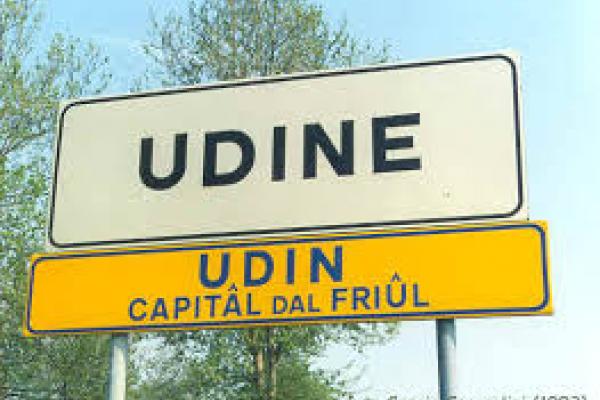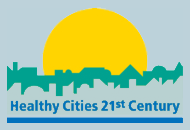Belfast Academics Visit the WHO Healthy City of Udine to learn of Healthy and Active Ageing

Learning from the wider WHO European Healthy Cities Network is a key aspect of being a healthy city. Many cities have developed expertise in addressing particular themes that can be used to inform approaches in Belfast.
In May 2015, Dr. Brendan Murtagh and Dr. Andrew Grounds from Queen’s University Belfast visited the Age Friendly Cities programme in Udine, Italy. Having joined the WHO Healthy Cities Project in 1995 one of the core themes has been to promote a ‘Healthy and Active Ageing Model’. Both Furio Honsell (Mayor of Udine) and Stefania Pascut (Programme co-ordinator) (Programme co-ordinator) demonstrated how this model has underpinned various ‘age friendly’ initiatives across the city:
- The organisation of healthy nutrition workshops that promote the value of a healthy diet and lifestyle.
- The development of local walking groups to encourage physical wellbeing as well as social interaction.
- The application of the Vancouver protocol, which places a particular emphasis on the participation of local older people, carers and service providers from the public, private as well as the voluntary sector.
- GIS was used to map the distribution of older people (using GIS) with respect to the local provision of public health and social services. The local authority used this data to legally challenge how pharmacy licenses were regulated given the mismatch between the distribution of older people and the current location of services. They won the case to ensure that pharmacies can be planned and located where they are needed and not just where they are profitable.
Udine also places a strong emphasis on mental health and the maintenance of cognitive capabilities through a programme called CamminaMenti (Minds on the Move). This values crystallised intelligence—the use of skills, knowledge, and experience, rather than just memory. During the visit, Professor Brocato demonstrated how this approach has been embedded in a recent IT project in which older people use local schools and are taught various new skills by students. This has also provided them with an opportunity to socialise, be creative and at the same time play a more active role in the wider community. Along with other inter-generational programmes such as the collaboratively managed urban gardens project, Udine are investing both time and resources into making Udine a healthier, more inclusive and enjoyable place to grow old. From speaking to both old and young people that are currently involved, it would seem that the benefit of such activity is mutual and there are important lessons to be learnt and transferred from such inter-generational work.


